Jurassic World Rebirth brings the dino franchise back to life by finally returning to what made it iconic in the first place—real stakes, grounded characters, and visual awe. Directed by Gareth Edwards and written by Jurassic Park veteran David Koepp, this seventh film avoids the CGI overload that plagued recent entries and instead leans into suspense and emotion.
Breaking away from past casts, Jurassic World Rebirth introduces a new team led by Scarlett Johansson as Zora Bennett, a no-nonsense special-ops veteran, and Jonathan Bailey as Henry Loomis, a paleontologist eager to see living dinosaurs for the first time. Their mission? A high-risk expedition to a forbidden island to collect blood samples from three colossal species. Supporting them is Mahershala Ali’s Duncan Kincaid, a gruff yet sympathetic captain.
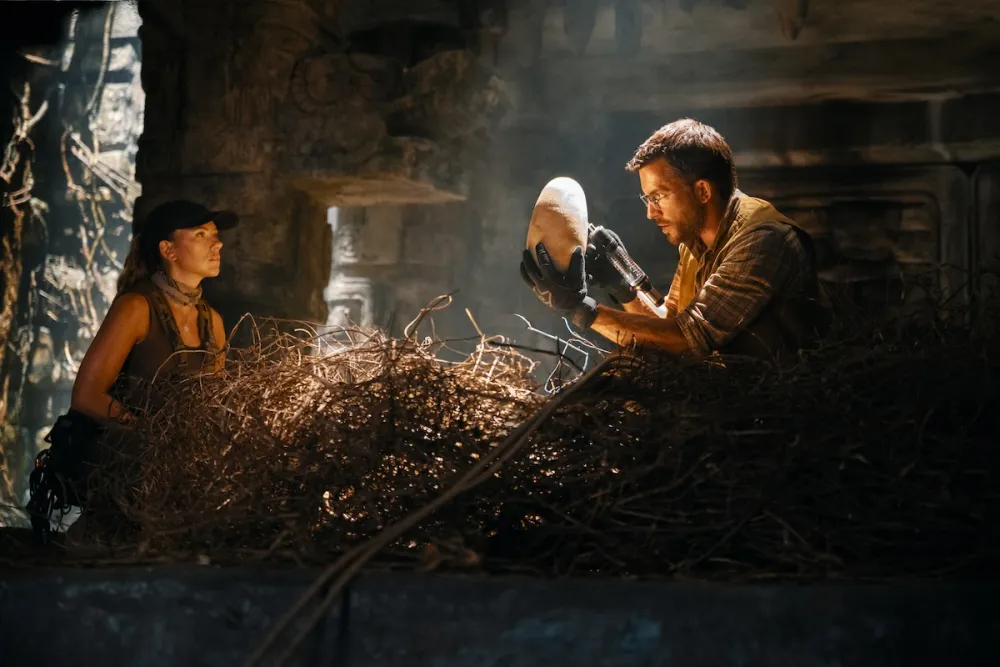
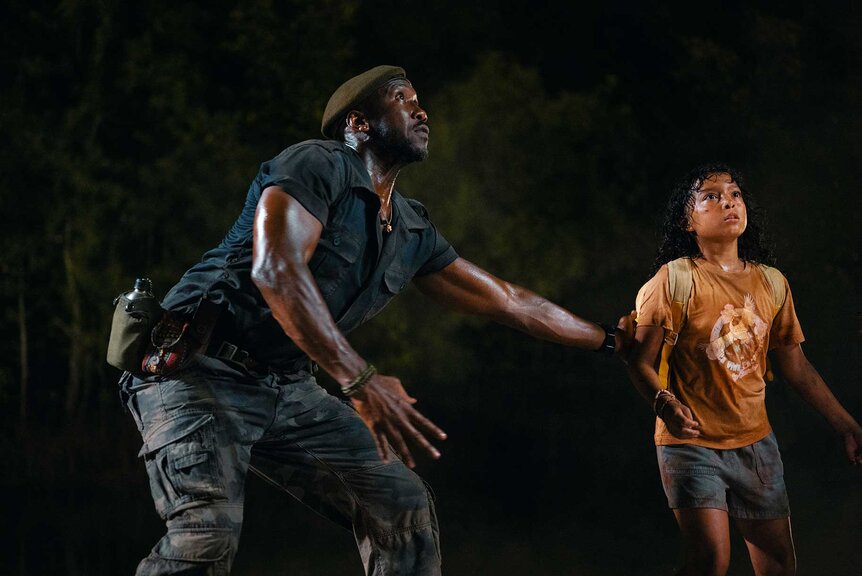
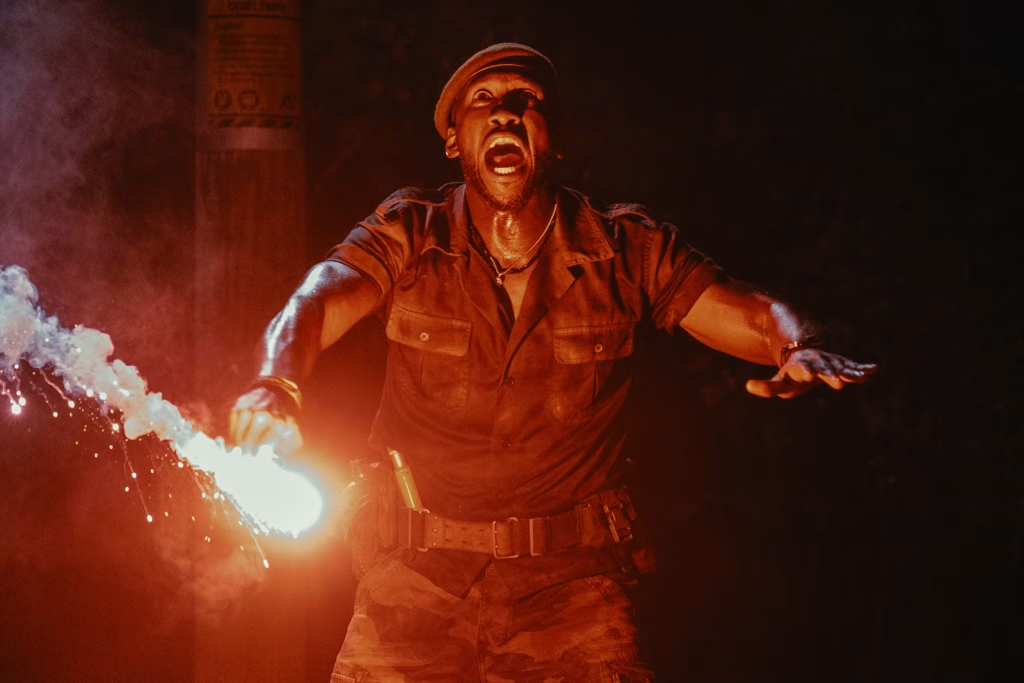
The story kicks off with an eerie Mosasaurus encounter, where Edwards wisely uses shadows and tension before unleashing the full creature. This approach continues throughout the film, offering breathtaking set-pieces without overwhelming the audience with effects. Familiar dinosaurs like the T. rex and velociraptors return, while new hybrids like the terrifying six-legged Distortus rex add fresh danger.
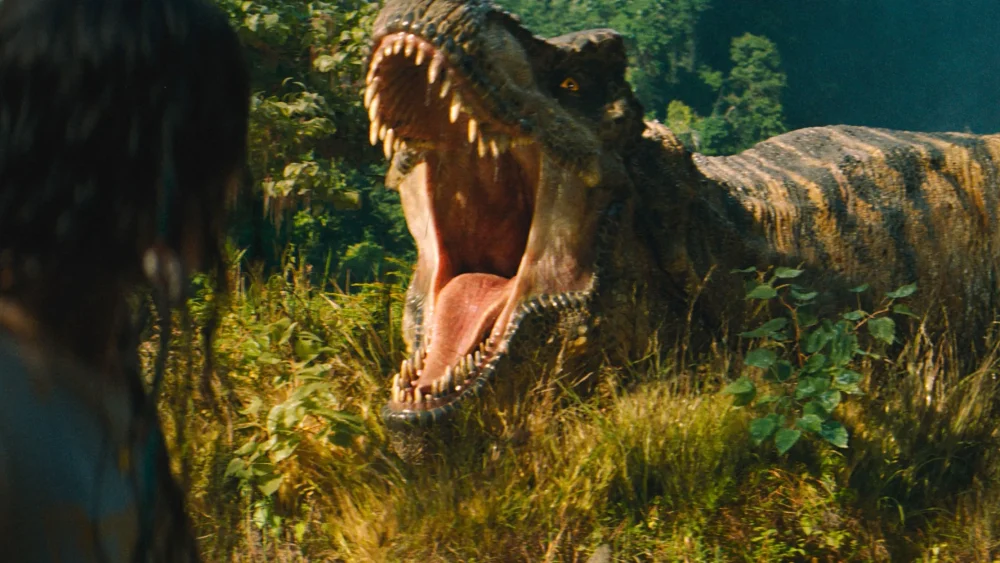
Yet what sets this Jurassic World installment apart is its heart. The film introduces a stranded family, including a young girl who bonds with a tiny Aquilops she names Dolores. These tender moments offer a counterbalance to the action, suggesting that some dinosaurs might deserve their place in this new world.
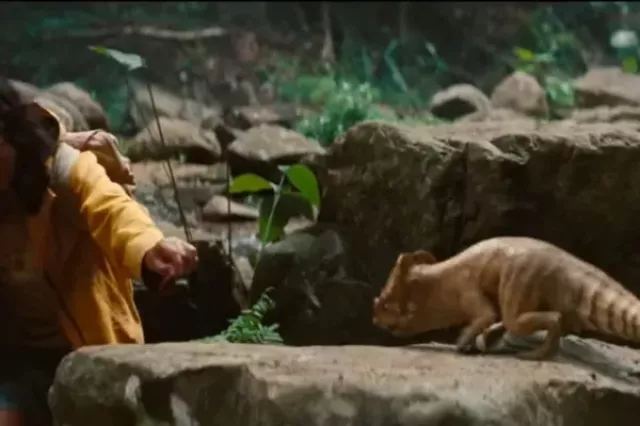
With practical effects, a thoughtful script, and a compelling new cast, Jurassic World Rebirth revitalizes the franchise. It doesn’t radically shift the story forward but instead reminds fans of why they fell in love with dinosaurs in the first place. For anyone disappointed by previous sequels, this chapter is a strong step in the right direction for the Jurassic World legacy.